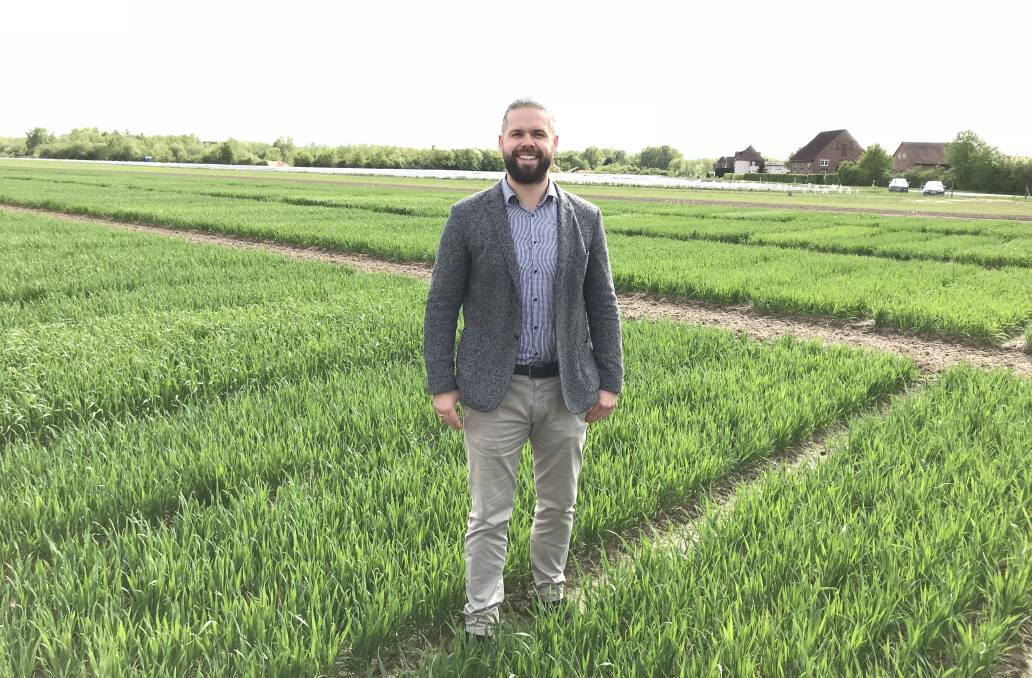
ONE of the most persistent myths in the agriculture industry is that old varieties of cultivated crops are much hardier.
Subscribe now for unlimited access to all our agricultural news
across the nation
or signup to continue reading
This opinion is further pushed when there is news of breeders seeking to find improved disease resistance traits or better drought tolerance from an ancient wheat land race found in the backblocks of the Caucasus Mountains or grown only by people in one small North African village.
However, research conducted in European, utilising researchers from the Queensland University of Technology (QUT) and the Queensland Alliance for Agriculture and Food Innovation (QAAFI) has found that new wheat varieties are no more reliant on pesticides and fertilisers than their predecessors.
Kai Voss-Fels of QUT said modern wheat varieties have out-performed older varieties in side-by-side field trials under both optimum and a range of harsh growing conditions.
"There is a view that intensive selection and breeding, which has produced the high-yielding wheat cultivars used in modern cropping, has also made them less resilient and more dependent on chemicals to thrive," Dr Voss-Fels said.
He said this was not the case, and that the newer varieties could mix it with the old ones over a range of conditions, not just when rainfall and nutrition were abundant.
"The data unequivocally shows that modern wheat out-performs older varieties, even under conditions of reduced amounts of fertilisers, fungicides and water."
But there is a role for the old lines, especially those land races not yet utilised by breeders, in terms of adding genetic diversity to modern wheat varieties, which could have a big impact on yields.
"We also found that genetic diversity within the relatively narrow modern wheat gene pool is rich enough to potentially generate a further 23 per cent increase in yields," Dr Voss-Fels said.
The researchers compared 200 wheat varieties, essential to agriculture in Western Europe over the past 50 years, under contrasting input levels of mineral fertilisers and plant protection chemicals.
Dr Voss-Fels said the findings, especially how modern lines performed in the tough conditions replicated in trials, might surprise some farmers and environmentalists.
"Quite a few people will be taken aback by just how tough modern wheat varieties proved to be, even in harsh growing conditions, such as drought, and using less chemical inputs."
The Queensland connection to the research came in the form of the recording of the various trial performances of the varieties, which were matched to the genetic make-ups of the varieties according to a method developed by Dr Voss-Fels and Ben Hayes, of QAAFI.
"This genetic information allows us to take the discovery to the next level," Dr Voss-Fels said.
"We want to develop breeding strategies to bring together favourable alleles (two or more alternative forms of a gene that arise by mutation and are found at the same place on a chromosome) in new cultivars in the shortest possible time."
"We are using artificial intelligence (AI) algorithms to predict the optimal crosses needed to bring together the most favourable segments as fast as possible."
Global wheat yields have been reduced by droughts in recent years, especially in Australia, with QUT's home state of Queensland especially hard hit by drought over the past three years.
Dr Voss-Fels said with more climate risk anticipated, the hardiness of modern wheat varieties was an issue of global significance.
"Increased breeding efforts are needed to enhance the resilience of wheat varieties to challenging environmental conditions."
Dr Voss-Fels said the study's findings could also have important implications for raising the productivity of organic cropping systems.


